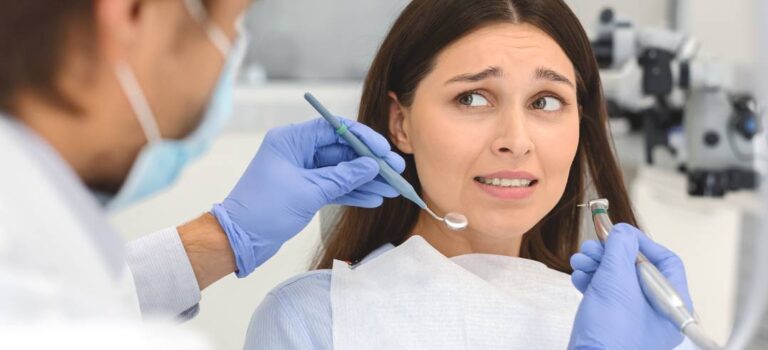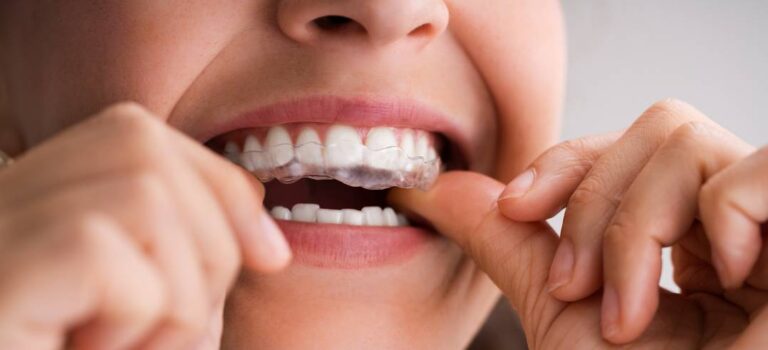Handling Dental Emergencies
Dental emergencies, such as cracking or breaking a tooth, require prompt attention. The first step is to stay calm and assess the situation, as the severity of a tooth break can vary widely. While some instances may not require immediate care, others—especially those involving severe pain or a knocked-out tooth—necessitate urgent attention. Recognizing the signs of a serious dental emergency can make a significant difference in the outcome.Common Types Of Tooth Damage
Teeth can sustain various forms of damage, each requiring different approaches.- Cracked Tooth: A crack can range from a minor line on the enamel to a more serious fracture that affects the core of the tooth.
- Chipped Tooth: Chips are often less severe but can still expose sensitive areas of the tooth structure.
- Fractured Cusp: This type of fracture typically occurs around a dental filling.
- Root Fracture: A serious condition involving a crack extending from the root of the tooth, potentially requiring a root canal or extraction.
Immediate Steps To Take
If you break a tooth during the weekend, acting quickly can alleviate pain and reduce the risk of further damage.- Rinse Your Mouth: Use warm water to clean the affected area gently.
- Control Any Bleeding: If the gum is bleeding, apply gentle pressure with gauze until it stops.
- Apply a Cold Compress: Reduce swelling by placing a cold compress on the outside of your mouth.
- Take a Pain Reliever: Over-the-counter medication can provide temporary broken tooth pain relief.
- Preserve the Tooth or Broken Fragments: If a tooth is knocked out or fragments are dislodged, keep them moist in milk or saline solution.
Understanding Emergency Dental Care
Visiting an emergency dental office is vital for assessing and repairing damage. Emergency dental care can prevent complications such as infection or tooth abscess formation, ensuring that pain and dysfunction do not persist.Benefits Of Seeking Professional Help
Seeing a dentist promptly offers several advantages:- Accurate Diagnosis: Assess the extent of the damage and what it means for the tooth structure.
- Timely Pain Relief: Solutions like cracked tooth pain relief that go beyond temporary measures.
- Preservation of Tooth Health: Prevents the need for more extensive treatments later on.
- Prevention of Infections: Early intervention reduces the risk of abscesses.
Options For Weekend Dental Services
Accessibility to weekend dental services is beneficial for promptly managing dental emergencies. Seek out practices that offer emergency care on weekends, ensuring you receive necessary treatment without delay.Temporary Fixes For A Broken Tooth
While awaiting professional care, some temporary measures can be taken.- Dental Wax: Covers sharp edges and protects the inside of your mouth.
- Temporary Dental Cement: Available at pharmacies for covering exposed areas.
- Avoiding Certain Foods: Stay clear of hard or sticky foods that could worsen the damage.
Considerations For Broken Tooth Repair
The best course of action will depend on the specific condition of the broken tooth.- Dental Bonding: Ideal for minor chips, using a resin matching your tooth color.
- Filling or Crown: Repairs larger breaks and restores the tooth’s function and appearance.
- Root Canal Therapy: Necessary if the pulp is affected to preserve the tooth.
- Extraction and Replacement: When a tooth is severely damaged, removal followed by an implant or bridge might be needed.
Preventing Future Dental Emergencies
Taking proactive steps can significantly reduce the risk of future dental emergencies. Regular dental check-ups are highly recommended, as they help maintain oral health and allow your dentist to detect potential issues early on. Using mouthguards during sports activities is also essential for protecting your teeth from injury. Additionally, avoiding chewing on hard objects—such as ice or non-food items—can prevent unnecessary stress or damage to your teeth.Handling A Broken Tooth
Learning to handle broken teeth with confidence can spare much distress and confusion. It’s about knowing the initial steps to ensure your comfort and the outcomes you can expect from professional dental care.Emergency Tooth Repair Solutions
Emergency dental repairs—whether for a chip, fracture, or break—ensure comfort and restore confidence in your smile. Options range from cosmetic fixes like bonding to more comprehensive treatments like root canals.Differences Between A Cracked & Broken Tooth
Understanding the difference between a cracked and broken tooth helps determine urgency and repair options.- Cracked Tooth: May not be visible, sometimes only discovered through symptoms like pain when biting.
- Broken Tooth: Usually results in visible parts missing, often accompanied by discomfort.
Possible Complications Of Ignoring A Broken Tooth
Neglecting a broken tooth can result in several serious consequences. Delaying treatment often exacerbates the damage, reducing the available treatment options and potentially limiting the ability to restore the tooth effectively. Untreated tooth damage can also lead to infections or abscesses, which not only endanger oral health but pose systemic health risks if bacteria spread to other areas of the body. Additionally, ignoring a dental issue commonly results in prolonged pain and discomfort, increasing the complexity of eventual treatment and driving up associated costs over time.Common Broken Tooth Pain Measures
Several methods can ease discomfort until you see your dentist.- Over-the-counter Pain Relievers: Offer immediate relief.
- Saltwater Rinses: Can reduce bacteria and soothe tissues.
- Maintaining Oral Hygiene: Keeps the area clean and prevents complications.
Preparing For Your Emergency Dental Visit
Being prepared for your dental visit can expedite treatment and mitigate distress.- Bring Any Tooth Fragments: Helps the dentist assess the full scope of damage.
- List of Medications: Note any medications for comprehensive care.
- Communicate All Symptoms: Ensure no aspect of your discomfort is overlooked.
FAQs
If the broken tooth causes pain or significantly affects your bite, you should see a dentist immediately to prevent further damage or complications.
Yes, rapid treatment—ideally within an hour—increases the likelihood of successful tooth re-implantation.
Cracks can expose sensitive nerve endings or the tooth's pulp, leading to discomfort or sharp pain, especially when chewing or biting.
Act Now For Safe Smiles On San Ramon
If you find yourself dealing with a dental emergency like a broken tooth, the skilled and compassionate team at Pro Smile Dental Care is here to assist. Located in San Ramon, CA, our emergency services are designed to provide immediate relief and comprehensive care to restore your dental health and peace of mind. Reach out to us right away for all your urgent dental needs.





